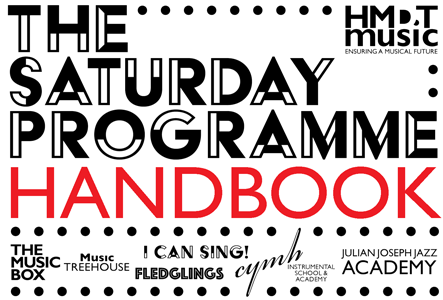< Previous page 12. / Next page 14. >
14. Practice
It is essential that students practice between each session. This does not just include the work that their instrumental teachers set, but the pieces that they are learning in their ensembles and choirs as well as occasionally work for their theory lessons (if taken). Without practice, students will be unable to progress on their instrument.
We encourage students as much as possible to practice at home, however students may not practice without parental input/ supervision and, by enrolling your child in the programme, you are undertaking to take an active role in your child’s musical education.
Practice should be regarded as being equally important as attendance. Staff and coaches will regularly review each student’s practice habits. If it is felt that students are continually not practicing for sustained periods, the parents or carers will be notified and if there is no improvement in practice levels, the student may be asked to leave the Programme. This is for the benefit of ALL students. As students learn in groups, if one student isn’t practicing, the level of the group can become too disparate, which may result in poor progress for fellow students.
HMDT Music highly recommends that parents sign up to participate in the Parents Programme on off-timetable days, which provides parents with many of the tools required to assist with a good practice regime.
In order to help your child(ren), it may be helpful to consider the following points:
- Space – a quiet space where your child can practice without being disturbed should be identified;
- Time – it is often a good idea to fix a regular time for practice so that it becomes part of your child’s routine. Ideally, all students should practice every day;
- Amount – the amount of practice will vary according to age, stage of learning and the instrument being studied, with 15 minutes being the recommended daily starting amount. If in doubt, please discuss this with your child’s instrumental tutor(s);
- Aims – your child should have clear instructions from their instrumental coach(es) as to what should be practiced and how. If this does not appear to be the case, please discuss it with the tutor concerned. The notebook provided is an important aid to this and will record weekly progress.
- Support – although students should be encouraged to learn to practise on their own, parents/carers can contribute a great deal by assisting with their child’s practice and monitoring their progress. This is particularly essential for the first few years of learning. If possible, try to arrange an occasional “informal performance” at home;
- Record-keeping helps (as a reminder) to keep a record of your child’s practice. As well as your child’s notebook and tutors’ weekly instructions, HMDT Music can provide you with a practice chart to be completed daily, which is a good aid for monitoring practice.
If you have any queries about practice, or wish to discuss it further, please contact the Senior Manager or talk to your child’s Instrumental Tutor(s) on Saturdays.
a. MATERIALS
In order to aid with student practice, students should make sure that they have a pencil, notebook and folder for music at every session. Folders and notebooks, as well as Saturday Programme shoulder bags, may be purchased from HMDT Music staff.

